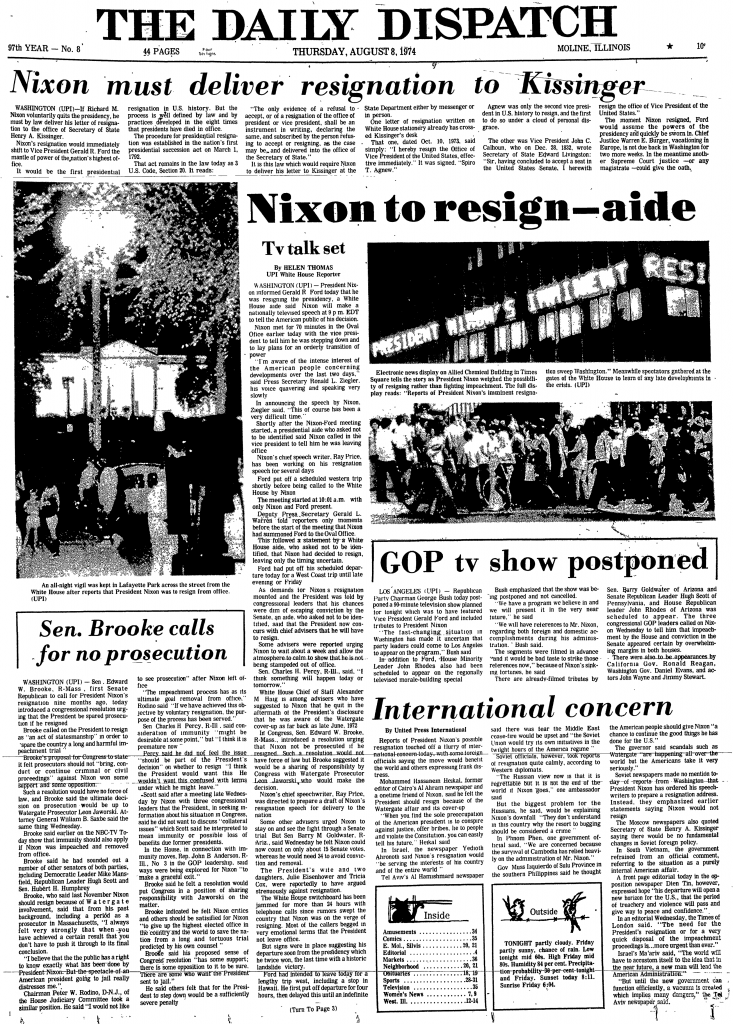On August 8, 2023, parts of the Hawaiian Island of Maui were set ablaze as wildfires began to break out. A combination of high wind speeds and dry weather created the perfect conditions for a small blaze to turn into a massive wildfire. The worst of the fire’s impact was felt in the city of Lahaina, which is located on Maui’s western peninsula. What started in the city as a small brushfire grew large enough to envelop the town center in 15 minutes. At times, the fire was so hot that it melted water pipes, which further limited the ability to fight the fire. Once all the fires had been extinguished, the toll of the destruction consisted of over 102 deaths and 3,000 structures either damaged or demolished.
On August 13th, 2023, a harrowing depiction of the destruction was published in The Gazette. The headline “As Maui reels from wildfire, survivors wonder what went wrong” paired with a picture of a man walking along an ash-covered street with cars that had been abandoned due to traffic shows just how hard the city was hit. They also shared the stories of some survivors, many of whom recalled struggling to help those around them also get to safety, and not knowing whether other people they knew were ok. Today, Maui is still in the long process of rebuilding, and while most of the debris cleanup has been completed, rebuilding structures has taken more time. Despite this, the people of Lahaina continue to show their resilience in the wake of these massive fires.

On August 10, 1993, Justice Ruth Bader Ginsburg officially took her seat on the United States Supreme Court. Ginsburg, affectionately nicknamed RBG, was the first Jewish woman, and second woman ever, to hold a seat on the Supreme Court. Before she was nominated for this position, she had a lengthy career that helped prepare her for the job. She attended Harvard Law until her final year, when she transferred to and graduated from Columbia University. She later returned to Columbia, where she taught and even became a tenured professor, as well as getting involved with the ACLU. She was appointed to serve in the US Court of Appeals for the DC circuit in 1980, where she was a judge until she was nominated for the Supreme Court in 1993. In an article found in the Quincy Herald Whig, published on August 10th 1993, quoted Ginsburg feeling “a combination of exhilaration, awe, exhaustion, and great anticipation” as she looked towards being sworn in. She also expressed her excitement to work alongside Justice Sandra Day O’Connor, who was the first female Supreme Court judge, as she anticipated having many beliefs in common. As a judge, RBG was best known for her relentless advocacy on issues like gender equality and women’s rights. She held the position until she died in 2020.
(1945 – 1980s) Stepping Down: Nixon Announces Resignation, 1974
After the Watergate scandal, President Richard Nixon’s reputation continued to tank. Trust in his administration had been severely broken after the hotel break-in revealed evidence of criminal activity. Facing potential impeachment, Nixon instead decided to resign. On August 8th, 1974, rumors of his resignation began to swirl, including in the Daily Dispatch, where the information was allegedly shared by an aide about his imminent resignation. That evening, Nixon held a televised national address, where he formally announced his intention to resign from office. He shared his regret for his actions, acknowledging that he would not be able to serve America in the way it should be, and that he was to resign the following day at noon. At one point, he even expressed that while he felt personally ashamed of having to resign before his term was over, he believed that as president, he needed to put the best interests of America first, which included his departure from office. In his place, Vice President Gerard Ford would be sworn in, and a new administration would begin. Nixon was the first president to ever resign from office, and as of now remains the only president to do so.

This week in 1945, America made a dangerous and destructive decision to drop two atomic bombs on Japan. The bombs were created in a top-secret project by the US Government during World War II. After the Allies achieved victory on the European front of the war, they turned their attention to the Pacific front. Japan was putting up a hard fight, and President Harry Truman made the difficult decision to use atomic weapons to hopefully end the war once and for all. In the early morning hours, US troops flew over and deployed one of the atomic bombs on Hiroshima, Japan. As the bomb reached the city, it erupted in a gigantic mushroom-shaped cloud and blinding flash of light. While less than 2% of the uranium in the bomb reached fission (which is what caused the explosion in these atomic bombs), the impact was devastating. Between 60,000 and 80,000 people were instantly killed upon the explosion, many of whom were reduced to little more than ash, and two-thirds of the city was demolished. On August 7th, the Newark Evening News shared more details on the devastation and expressed doubt that Japan would continue to fight now that they knew the power of the US Weaponry. However, despite the devastation, Japan did not surrender. As a result, just 3 days later, on August 9th, 1945, the United States dropped a second atomic bomb on Nagasaki. This time, 40,000 were killed instantly, and nearly 30,000 more died from the effects of radiation. This time, the Newark Evening News reported that Japanese officials seemed to have gone silent in the immediate wake of the bomb. Many believed the second bombing would be the true test of how effective these weapons really were, as they continued to level Japan. Thankfully for the United States, this second bombing resulted in Japan’s surrender and the official end of WW2. Despite it leading the allies to victory and putting an end to World War II, the morality of using such lethal weapons continues to be a hot debate today.
(1824 – 1914) Domestic Grief and International Conflict: Woodrow Wilson Faces Death of Wife and Potential War in Europe, 1914
This week in 1914 was a difficult time for US President Woodrow Wilson. As war was breaking out in Europe (what we now know as the beginning of World War I), questions over potential American involvement weren’t the only trouble he was facing. In addition to that pressure, he was also mourning the loss of his first wife, who passed from complications of Bright’s disease. She died on August 6th, 1914, and Wilson was understandably distraught. The Mineral Daily News recalled on August 8th that after her death, Wilson visited her multiple times, where he seemed to be grief-stricken. Additionally, they reported that Wilson was not the only one grieving, and that many in DC who had interacted with the first lady joined in his mourning. However, his role as president of the United States never ceased. As such, Wilson continued to manage domestic affairs away from the public eye. It was during this time that he proclaimed neutrality, and he didn’t address Congress on the matter until days after. Wilson later remarried, but soon after suffered a stroke that significantly diminished his health.
Join me again next week to discover more of history’s hidden gems and timeless tales.
Explore the “Read All About It” archives to read stories that spotlight our partners and their communities, announcements from our team, updates on current projects, and so much more. Discover articles about engagement, outreach, primary sources, community, digitization, education, and other topics of interest. Delve into the happenings in this week in history and take a deep dive into the events and people who helped shape our communities, our nation, and the world.
Hear Ye, Hear Ye, READ ALL ABOUT IT!
Advantage Archives works to build strong, community-based partnerships to provide free online access to local history, making it discoverable and easily accessible to anyone, anywhere, at any time, on any device. This allows communities to understand and connect to their past in a meaningful way. Through the Community History Archive search platform, we provide the community with the means to explore, discover, learn from, connect with, and share the stories of the people, places, and events that shaped their community.
The Community History Archives are intended to serve as a “portal to the past”, allowing local primary source documents to give an accounting of history as told by the individuals that witnessed it. Advantage Archives guiding principals center around building strong community-based partnerships, which is why we enter into them with the intent of shouldering our fair share, and taking the burden off of the community for the ongoing costs associated with storage, hosting, development, and maintenance of the Community’s History Archive. We are an active participant in the community’s efforts to make their collective history more accessible. The Community History Archives are maintained for free by Advantage and do not require a subscription, seat license, annual support contract, or any other ongoing costs or expenses to the institution or members of the community.
If you would like to see more local history online, please contact your local library, newspaper publisher, genealogical society, historical society, or educational institution, and encourage them to learn more about creating a Community History Archive or have them contact Advantage Archives at (855) 303-2727



